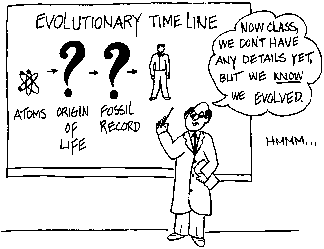 The secular humanist’s insistence on naturalism also poses a problem when it comes to cosmology. That the natural world had an ultimate beginning has now been firmly established by the big bang cosmology. Yet for naturalism to be coherent, the universe should be static and eternal.[1] Because our space time reality is contingent, the principle of sufficient reason or the scientific method would lead one to look for a sufficient cause. An infinite regress is irrational. Thus, a self-existent necessary first cause is clearly the best explanation. The only possible alternatives are irrational appeals to self-creation or that something comes into being without a cause. Unfortunately, this is exactly where secular humanism arrives. The famously brilliant physicist, Stephen Hawking, has recently argued, “Because there is a law such as gravity, the universe can and will create itself from nothing. Spontaneous creation is the reason there is something rather than nothing, why the universe exists, why we exist.”[2] In other words, to create itself, the universe had to exist, before it existed. This is nonsense. Fortunately for theists, the law of non-contradiction is still a necessary corollary for real science. It seems far more reasonable to assert that that which caused nature is indeed supernatural.
The secular humanist’s insistence on naturalism also poses a problem when it comes to cosmology. That the natural world had an ultimate beginning has now been firmly established by the big bang cosmology. Yet for naturalism to be coherent, the universe should be static and eternal.[1] Because our space time reality is contingent, the principle of sufficient reason or the scientific method would lead one to look for a sufficient cause. An infinite regress is irrational. Thus, a self-existent necessary first cause is clearly the best explanation. The only possible alternatives are irrational appeals to self-creation or that something comes into being without a cause. Unfortunately, this is exactly where secular humanism arrives. The famously brilliant physicist, Stephen Hawking, has recently argued, “Because there is a law such as gravity, the universe can and will create itself from nothing. Spontaneous creation is the reason there is something rather than nothing, why the universe exists, why we exist.”[2] In other words, to create itself, the universe had to exist, before it existed. This is nonsense. Fortunately for theists, the law of non-contradiction is still a necessary corollary for real science. It seems far more reasonable to assert that that which caused nature is indeed supernatural.
Secular humanists are particularly entrenched when it comes to the sacred cow of Darwinism. There are very good scientific reasons to doubt Darwinian orthodoxy but the majority of humanists are practiced in this debate. It might be wise to address a more ultimate question like the origin of life. Evolution cannot explain the origin of life and Darwin never really tried. There can be no Darwinian evolution without reproducing life and to date there are no feasible theories as to how this occurred. But even if we grant evolution, it does not equate to naturalism. There are many theistic evolutionists like human genome project director, Francis Collins, who argue that the evolutionary process itself is evidence of God’s design. For instance, William Paley’s classic argument from a watch to watchmaker still holds. Far from being a defeater, evolutionary theory leads one to believe that we have found a self-replicating watch that makes improvements on itself in response to its environment.[3] That demands not only a skillful design but one with foresight. When viewed through this lens, evolution actually refutes naturalism. This effectively demonstrates that naturalism and scientism are inadequate.
[1]Geisler and Turek, I Don’t Have Enough Faith to be an Atheist, Wheaton, Ill.: Crossway Books, 2004,72.
[2] Stephen Hawking, The Grand Design. (New York: Bantam Books, 2010), 14.
[3] Dinesh D’Souza. What’s So Great About Christianity. (Washington DC: Regnery Publishing, Inc., 2007), 98 .






